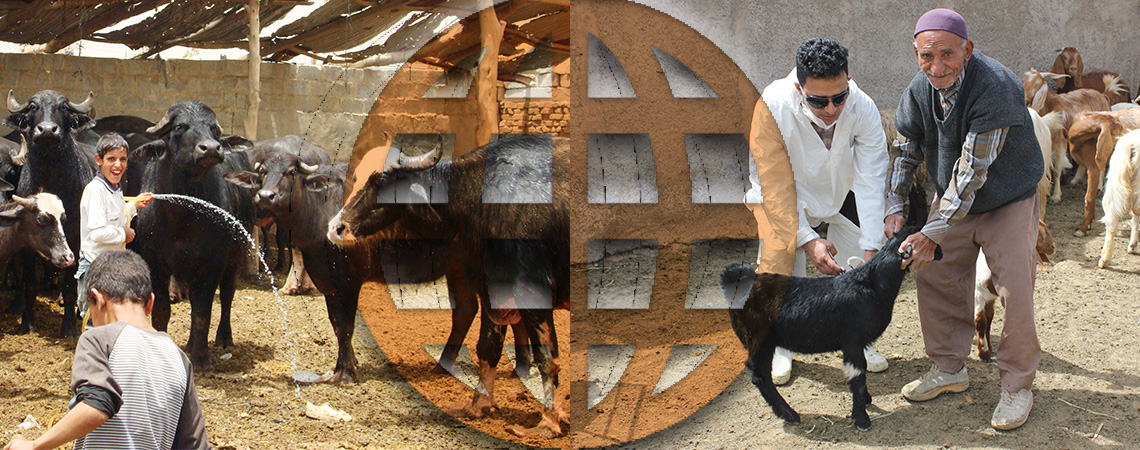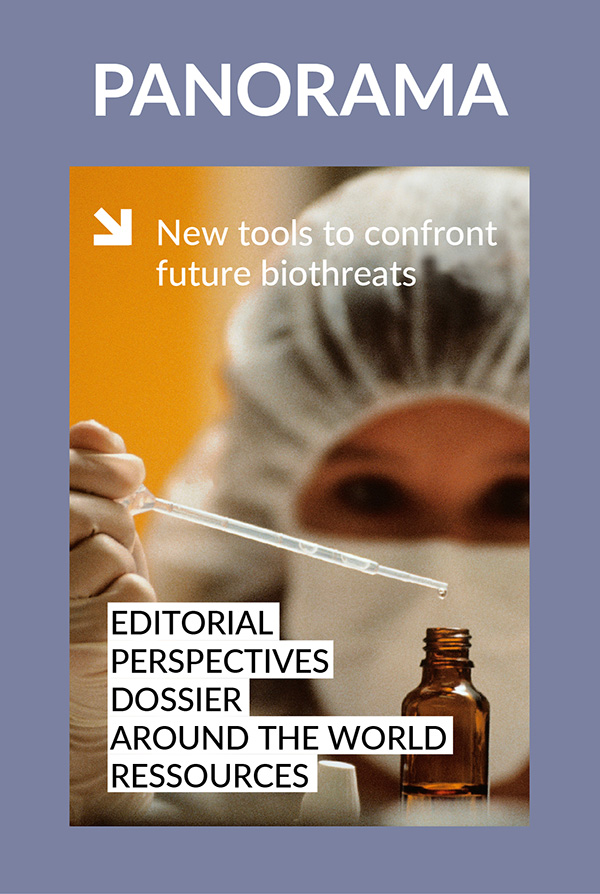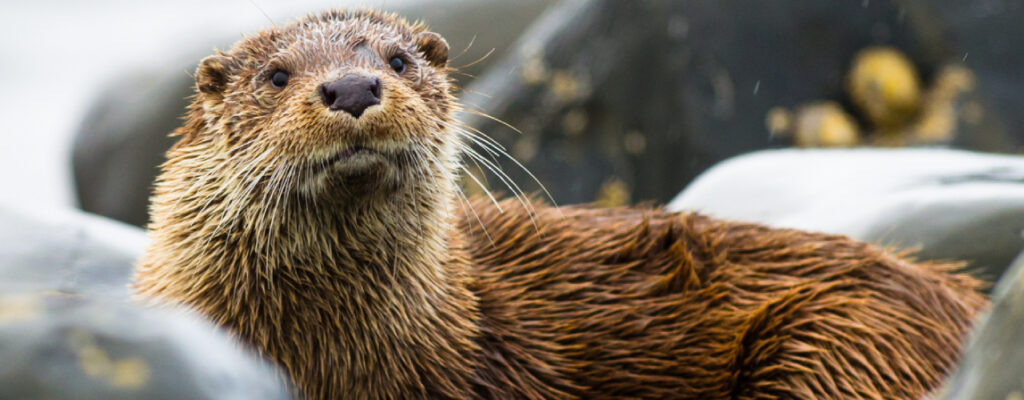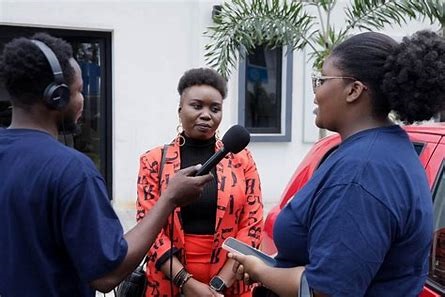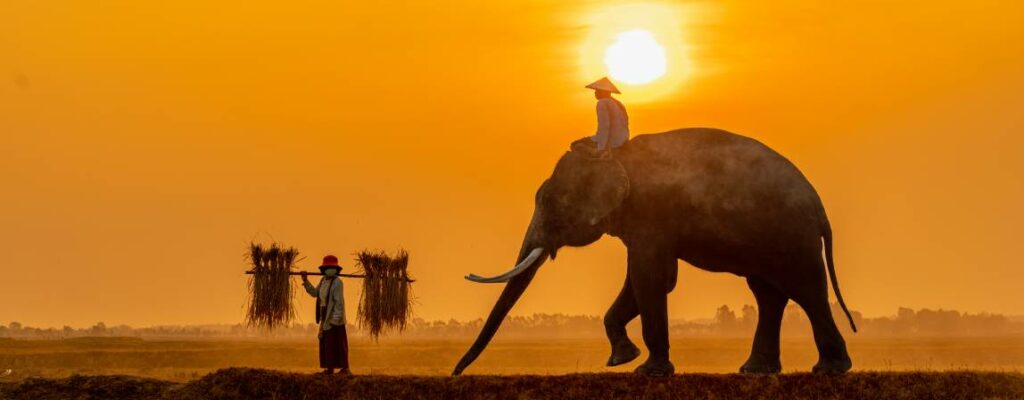Around the world Posted on 2018-07-03 11:57:35
Network initiatives
Working together to reduce biological threats in animal agriculture
Keywords
Authors
Director, Institute for Infectious Animal Diseases, Texas A&M University, United States
The designations and denominations employed and the presentation of the material in this article do not imply the expression of any opinion whatsoever on the part of the OIE concerning the legal status of any country, territory, city or area or of its authorities, or concerning the delimitation of its frontiers and boundaries.
The views expressed in this article are solely the responsibility of the author(s). The mention of specific companies or products of manufacturers, whether or not these have been patented, does not imply that these have been endorsed or recommended by the OIE in preference to others of a similar nature that are not mentioned.
Creating partnerships and promoting a world that is safe and secure from infectious disease threats helps to enhance health and security for all.
In 2014, the Institute for Infectious Animal Diseases (IIAD), a unit of the Texas A&M University System, was designated as the OIE Collaborating Centre in the specialised area of biological threat reduction, to support OIE activities for this mission. Both the OIE and IIAD have a long-standing practice of working in partnership with existing organisations in academia, government and private industry, and each believes that animal health is best advanced by assisting, coordinating and making use of existing resources and infrastructure, wherever possible.
Prioritising this topic by designating a dedicated Collaborating Centre further demonstrates the importance of capacity-building, scientific collaboration, and evidence-based practice in promoting the OIE vision of ‘protecting animals, preserving our future’.
The modern agricultural economy in the United States and in many other countries is highly dependent upon two things: freedom from disease, and trade. After the outbreak of an infectious livestock or poultry disease, it is imperative to be able to effectively implement science-based standards and demonstrate freedom from that disease, in order to limit the loss of revenue while still ensuring safe trade and protecting food security. A better understanding of global animal health and zoonotic threats improves our disease preparedness, prevention, detection and response. Supporting the development of science-based standards and providing effective tools and training for disease surveillance, control and eradication are at the core of IIAD’s mission.
IIAD engagement with the OIE
IIAD engagement with the OIE to date has resulted in substantial, meaningful, national and international opportunities to share our expertise, perform analysis and develop curricula in support of the OIE mission. During the past three years, this relationship has enabled IIAD to work together with the OIE on a two-year project to develop global veterinary standards that provide international guidelines for laboratory, animal health and veterinary public health para-professionals in 181 OIE Member Countries. This project will result in standardised competencies and curriculum guidelines for veterinary para-professionals, similar to the ‘Day 1 competencies’ for graduating veterinary students. The para-professional sector is an essential part of the veterinary services infrastructure in many countries. Para-professionals also provide much-needed services in countries with no or limited veterinary infrastructure. Improving the quality of their educational resources will produce tangible benefits to both global health and the economy.
IIAD has been working together with the OIE on a project about the competencies and curriculum for veterinary para-professionals
IIAD has also had the opportunity to assist with delivering high-priority technical patch fixes to the existing OIE World Animal Health Information System (WAHIS), through its partnership with the Texas Center for Applied Technology, a unit of the Texas A&M Engineering Experiment Station. The OIE World Assembly of Delegates recently voted to completely overhaul the entire system, a much-needed modernisation that will facilitate transparent communication and help to address Member Country needs through improved inter-operability and system flexibility. In addition, IIAD has undertaken an in-depth analysis of WAHIS data to assess the OIE PVS Tool, which has led to the development of a PVS ‘think tank’ within the OIE with the goals of identifying new assessment pathways for PVS, determining how PVS data can be further analysed in WAHIS, and developing a framework of ideas for developing future competencies within the OIE PVS Tool.
Health and security already exist and it is our job as policy-makers, regulators, researchers, educators, producers and students to build upon that foundation so that people everywhere can have access to an affordable, safe and nutritious food supply. Solutions needed to improve animal and public health, and to promote global health security, can only be produced through collective action. Collaboration and partnership are needed to support the OIE’s mission, improve Veterinary Services worldwide, and create a world that is safe and secure from infectious disease threats.
http://dx.doi.org/10.20506/bull.2018.1.2772




